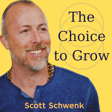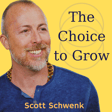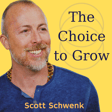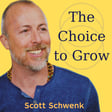
From Collapse to Connection with Jeff Krasno
Jeff Krasno joins Scott for a soul-centered conversation on what it means to live with integrity, openness, and heart in a collapsing world. They explore the sacred in the everyday, the power of grief to reveal truth, and how community and belonging start with radical honesty. This is a conversation for anyone longing to show up fully—in the mess, in the mystery, and in the magic of being human.
Jeff Krasno - Maverick Entrepreneur, Community Builder, Contemplative Writer
Jeff is the co-founder and CEO of Commune, a masterclass platform for personal and societal well-being. He hosts the Commune podcast, interviewing a wide variety of health experts and luminaries from Andrew Huberman and Marianne Williamson to Matthew McConaughey and Gabor Maté. Jeff pens a personal weekly essay titled “Commusings” that explores spirituality, wellness and culture and is distributed to over one million subscribers every Sunday.
Jeff is the author of Good Stress, a collection of wellness protocols that he developed to reverse his diabetes, lose 60 pounds and reclaim his health at age 50.
Jeff and his better three-quarters, Schuyler Grant, own and operate Commune Topanga, a 10-acre wellness center and production lab where they host regular retreats together featuring yoga, cold plunging, sauna bathing, lectures and story-telling.
Jeff & Schuyler have three beautiful daughters, Phoebe, Lolli and Micah. They currently live in Los Angeles, California.
Scott Schwenk - Master Coach, Spiritual Teacher, Leadership Consultant
Scott Schwenk’s teachings, courses and private mentoring guide leaders, seekers and creatives to explore their deepest selves in service of thriving on all levels of being, both individually and relationally.
Host and creator of the podcast The Choice To Grow, Scott is known for his hugely popular courses and workshops with OneCommune.com, Younity.com, Wanderlust Festivals, and Unplug Meditation, Scott has been catalyzing the inner evolution of others for decades: helping them to grow, transform obstacles into opportunities, and find Love within.
Scott spent several years living and studying in a meditation monastery which introduced him to the core body of Tantric meditation traditions which continue to flow through each of his teachings. Scott continues to study and teach from two key Tantric lineage streams.
Apprenticeships in leadership development, meditation and philosophy training, shadow work/shadow resolution and spiritual awakening are all part of Scott’s development into the thought-leader that he is today. He continues to refine his offerings studying and practicing with key innovators at the leading edges of human development.
Scott’s teachings support the entire person to not only progressively recognize, stabilize and embody our inextricable oneness with the source of creation (Waking Up), but also to resolve the wounds of the past (Cleaning Up), continually expand our capacities for wider and more inclusive perspectives on any moment (Growing Up) and creatively and joyfully participate and collaborate with all of life as a loving thriving human being (Showing Up).
You can receive a free guided meditation and explore Scott’s courses, workshops, retreats, training and master coaching at https://scottschwenk.com and can find him on Instagram @thescottschwenk.



